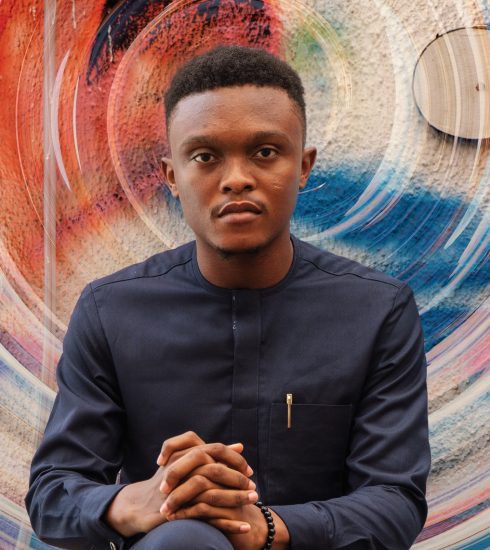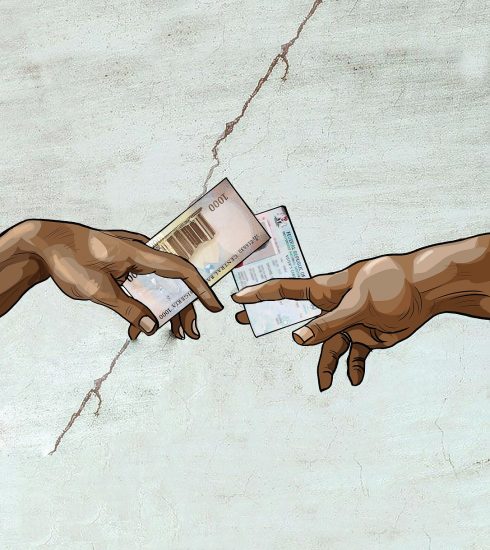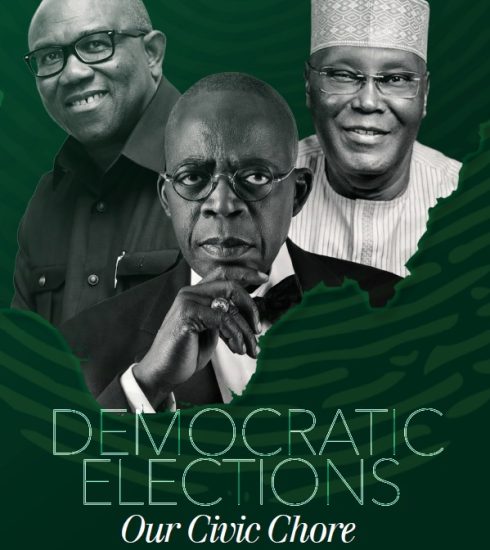WILLIAM BENSON – Owning the Screen
When it comes to commanding presence, few actors in Nollywood do it quite like William Benson. With a mix of charm, grit, and raw talent, Benson has steadily built a reputation as one of the industry’s most compelling performers. His latest role in the much-loved film, To Kill A Monkey, pushes his craft to thrilling new heights, offering audiences a performance that is as layered as it is unforgettable. In the film, Benson dives deep into a complex character whose journey unravels themes of power, morality, and survival. It’s a role that demands emotional depth, sharp instincts, and a keen ability to keep viewers hooked from start to finish, all qualities Benson brings in abundance. Beyond the technical mastery, his performance is a reflection of the dedication and discipline he’s
honed over the years in the industry. But there’s more to William Benson than just the man on screen. Off set, he exudes an easy charisma and warmth that resonates with fans and colleagues alike. Whether he’s sharing behind-the-scenes moments, engaging with his growing audience, or exploring new creative
avenues, Benson proves he’s as dynamic off camera as he is in front of it. In this conversation with THEWILL DOWNTOWN’s Johnson Chukwueke, William Benson talks about stepping into this career-defining role, the process behind bringing his character to life, and the personal passions that keep him grounded.
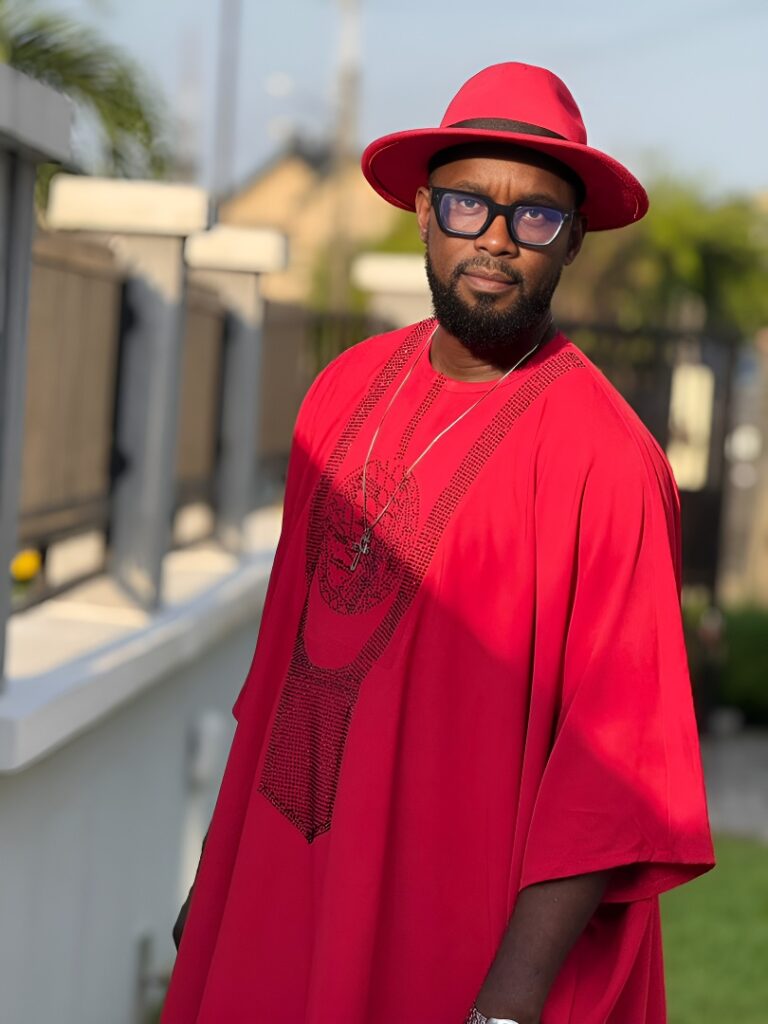
What first drew you to the role of Efemini in To Kill A Monkey?
I would start by saying I love what I do. I love my work, and it’s been a long time coming. I have been involved in theatre, film, radio, and various other genres of art, encompassing entertainment and drama. I have been honing my skills over time, I am never satisfied, and I learn every day. I come in empty and I present myself as a tool in the hands of the painter, who is the director to tell whatever story they want to tell, and it’s been like that with me for a long time, and I have applied this rule with every job. Whatever job I get, I apply what I call R.A.P., which stands for Research, Analysis, and Practice. Then, I come on stage to put it all together with my performance. I believe if I don’t enjoy what I am doing, the audience wouldn’t enjoy it, that’s why I immerse myself fully into every character I am given, once I understand the characters, where they are coming from, what is going on inside their head, what the character is also saying about themselves. My story in To Kill A Monkey started with God. I was in church on a Wednesday, we had an evangelism, I went to share fliers and talk about the crusade we were about to do. I wasn’t really satisfied with the evangelism I did, so I took more fliers and went to other areas we didn’t go to. I was done with that, came back hungry, and went into the church restaurant, and my pastor requested that I kneel down so he could say a prayer for me. The next day, I received a call from Kemi Adetiba. I had missed her calls four times, and by the time I pulled out my phone, it was my friend Tola Odunsi calling, asking why I hadn’t picked up Kemi’s call. I was actually surprised and told him that I would call him back cause I would need to check my phone. So I saw the missed calls, got on a call with Kemi eventually, and for almost two hours, I just listened to her telling her story, and by the time she was done, she told me I was needed on the set, and I agreed to it. The next day, Bucci called me after hearing that I was going to be part of the production. I knew Bucci all the way back when he was in Jimeji and I was playing the role of The General in Ajochie. Now, there’s a prayer I pray as a Catholic, it is “Lord, I am Yours I want to be, do with me what You will,” and this is exactly what I said to Kemi, I came in empty, just releasing myself onto her. She revealed how the whole thing came about as they were to use some other people, but it didn’t work out. However, Kemi, her husband, and her brother were taking a walk when my name suddenly came to her mind, and she remembered the clips of the Herbert Macaulay movie I did, and also reminded me that she had asked for a oneminute monologue from me, but I seemed to be acting uninterested and nonchalant. I told her honestly that I didn’t like filmed monologues as auditions. I prefer being brought into the environment where she wants me to audition, and I will be able to collaborate with whoever she pitches me with. I am a collaborative actor, and Kemi assisted me in getting into the place where the character should be. I was just a willing tool in the hands of a director who was ready to tell a story, just like a paintbrush in the hands of an artist.
Kemi is a very patient person. She helps you, she gets you there. I looked at her and told her that she is my number one director, as she is an actor’s director who knows how to get actors to where she wants them to be. What she wants, she gets, and I am willing to go the miles with her. Kemi drove me to the place, she psychologically took to where I wouldn’t have gone on my own if I were working with a director who wasn’t a visionary director and couldn’t stretch an actor beyond the normal. Kemi is not a half-measure director; she is all in, and she strives for perfection. She is not in a hurry to churn out a movie; there is a message to be passed, and she knows how to do just that. This movie was shot in 2023, and it’s coming out in 2025, and you can already see the buzz, the way people are receiving it like it were produced yesterday. She helped me immerse myself into the character, and it’s not just me, but everyone across board, that’s why in the series, it’s not just about cinematography, you are also looking at the content itself, the actors, the story, and you know, a good product will sell itself, and that’s what this movie has done. You can see the way everyone keeps analysing it, because it portrays real-life situations. We processed every scene, every word, every nuance, and all that. When I read my script as an actor, I don’t just cram the lines, I want to understand what I am saying, I want to understand what the character is all about, so once I’m done with reading the script, I willingly forget about everything I have done, and when I encounter the actor and we speak the first word out, the lines come through in real time like it’s happening. If you go back to Ajochie, you will see it’s the same thing, it’s my style, people say I am a method actor, I am not entirely sure what they mean, but I just am it when I get into my headspace, and I just want to enjoy being the character. Kemi was pivotal in helping me get to this headspace; she made everyone treat me like they hated me in order to get me feeling the actual emotions of someone being hated. When it came to the part where Efe became rich, she came to me and told me to ignore everyone, and to look at them like they amount to nothing. Kemi understands what she wants, and she is able to get it across the board.
Efe is such a layered character—how did you prepare mentally and emotionally to play him? Once I get on set, I become it, emotionally. I understood the script, I understood who I was going to be facing, Oboz. A very, very flimsy, loud, and generally eclectic character, and Efe is not the same thing. People would review these two characters and say Oboz is a stronger actor, and Efe is very good, and all. But when you look at these two characters as a good critic, you will realise these two characters are very different in nature and behavioural pattern. One comes from the street, while the other comes from an educational background with his first-class degree, but of course, life happened and he couldn’t succeed. Every time he gets close to success, something just happens that tears him down and makes it seem like when he takes one step forward, he then takes 10 steps backwards. While Oboz is the street guy who is likeable by all, but very rude, nasty, gets easily drunk, and talks trash. However, in the long run, he knows how to get back to the good side of everyone with his apology. We were delivering our roles based on who we are, we were feeding off each other. People felt for Bucci, then felt for Efe at a point, then when he made the statement, “Brotherly, get behind me, I will protect you.” People saw it as him protecting his asset because Efe was his asset, Efe was making money for him in Dollars, in foreign currency. If Efe had stolen any of Oboz’s money, do you think he would have let me live? No one knows. So basically, we are just tools used to deliver a story. I am a lover of God. Every time I go on set, the first thing I say to myself is, “Holy Spirit, take full control, show me how to do it.” Sometimes I will be performing and don’t know how I do it, but when I go back and rewatch it, I begin to wonder how I even made those emotional choices to the point that even I wonder how I made it so real. So, releasing yourself to being the character helps you position yourself to where the character needs to go.
Did you find any parts of Efe’s story personally relatable?
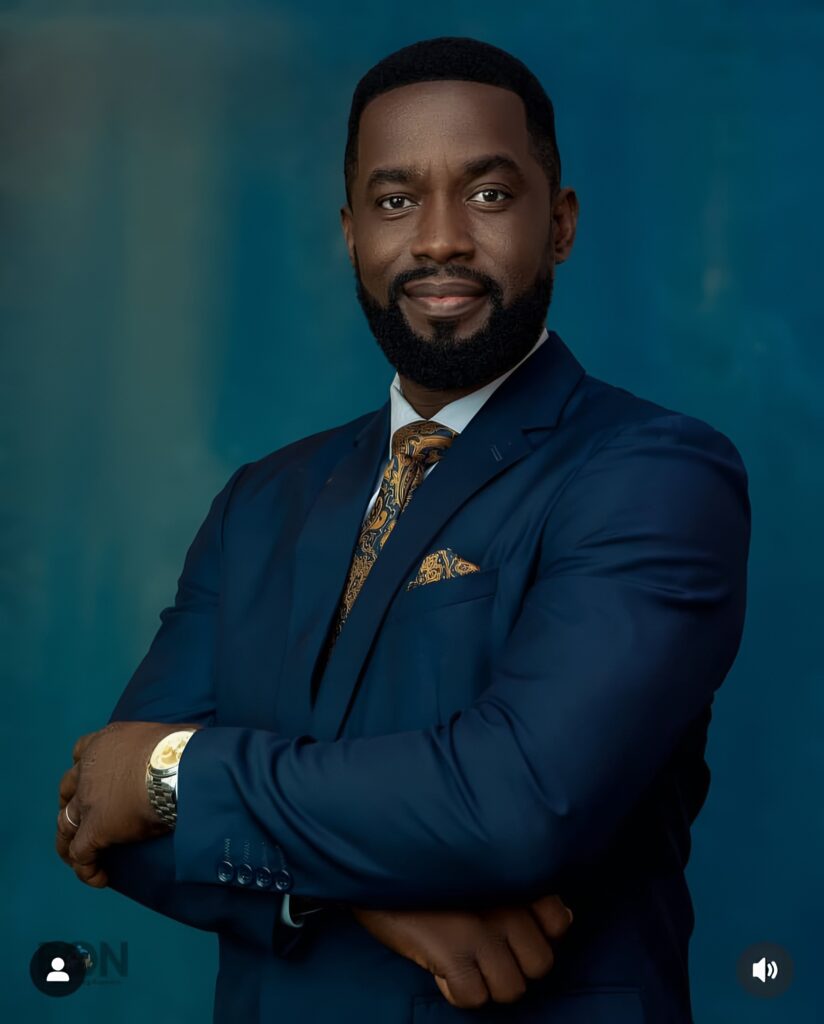
Not really, almost, but not really. We were young when my dad died, he passed at the age of 107, but we know he was older than that cause the oldest man in my village is 109 and he says my father was older than him. If I tell you my years and you take it out, then you will know how old my father was when he gave birth to me, and I am the 6th child of 8 siblings, so with that put together, he used to be one of the directors at Lagos States Waste Disposal Board, he retired in 1987, and things became a bit rough because they were being owed, and my mum held the family at that point because she was business minded, she had several shops at Alaba, and she was also a transporter at Tin-Can Iron. So, she took care of us, which is one of the things that resonated with me in trying to survive my family, because I saw my mother survive us. My father loved education, as long as it was education, he was all in for you. When he lost his job, the trajectory changed, and my mum stepped in. So, having to hear Nosa’s mum insulting me, while Nosa encourages me, now Nosa’s mother reminds me when my father gets hard on us at times, while my mum is the soft gel that massages our pain. At the end of the day, I made sure I positioned myself to enjoy affluence. At the end of the day, money gotten through illegal means never ends well. That part of my family experience resonated a little, but the rest was me understanding who Efe was by my experiences in society, and my experiences with people and friends who have been in such places. I do get DMs from people saying that Efe told the story of their life, that his experiences are what they are going through, and all that.
The series explores themes like desperation, morality, and loss. What message do you think Efe’s journey sends to viewers?
The message in Efe’s journey is that no matter how you suffer in life, and a glimmer of hope shows up, if you are going to take it, be very willing to also pull away from it, no matter the cost, because if you can do the crime, you can do the time. The lesson with Efe is, don’t engage in crime, no matter what goes around, it must come back around. Another lesson is that you should learn to love yourself before you decide to love someone else. Don’t get lost in the maze of love, trying to satisfy people. Even the Bible tells you to love thy neighbour as thyself, which means you have to love yourself enough before you have love for your neighbour; you can’t give what you don’t have. When push comes to shove and chaos comes in, everybody will abandon you. Two people on the road can be fighting, and the people around are adding more fire to the fight, telling them to beat each other, and when something happens and one person kills the other, the same people will turn around to condemn you after the deed has been done. People say Efe betrayed Oboz by selling him to Teacher. If you are in a situation where your daughter was placed in a freezer, and within that same tie frame, Oboz almost choked you out with a bag on a boat, then you come to find out that he is shagging your daughter too, then you find out that he also knows the person who put your daughter in the freezer. Even despite Efe saying he will bring out 15% to settle Teacher, Oboz still insisted on bringing out nothing from his end. At the end of the day, Teacher calls Efe and tells him to turn in Oboz in exchange for the safety of his family, and Efe isn’t from a whole life of street violence.
How did the director’s vision and the script influence your performance?
The script was already written, the story is already told, it’s a beautiful thing to have a director who wrote the script to also tell the story through visualisation as well. She sees the story, and she started putting it together beautifully, like an artist painting on a canvas, and the magic she has created with her storytelling is what people have watched, and more people will watch and keep talking about.
What did you learn about yourself as an actor while filming this project?
Learn what you haven’t known in the past, but also learn to empty yourself and keep it out of the way to take in new things that you may not have.
How was your experience working with the rest of the cast and crew on set?
It was fun, we were collaborative, like I said earlier, I am a collaborative actor. Everyone came hungry, everyone came to prove a point, everyone came with a mindset of getting into the same headspace with Kemi in order to tell this story we all know she has. Bucci is an excellent collaborator, same thing with Nosa, Amanda Sparkles was awesome, Inspector Ogunlesi was beautiful, Tracy George, Ireti Doyle, everyone was on point, the cast and crew were just amazing. Everyone brought their A-game, and no one came to show off, but they came to empty themselves for the purpose of the movie. I wore just two outfits for the whole of four weeks before I switched from being a poor man to being a rich man, and everyone was awesome. If you see our collaboration, you will understand why it resonates with everyone who has seen the movie.
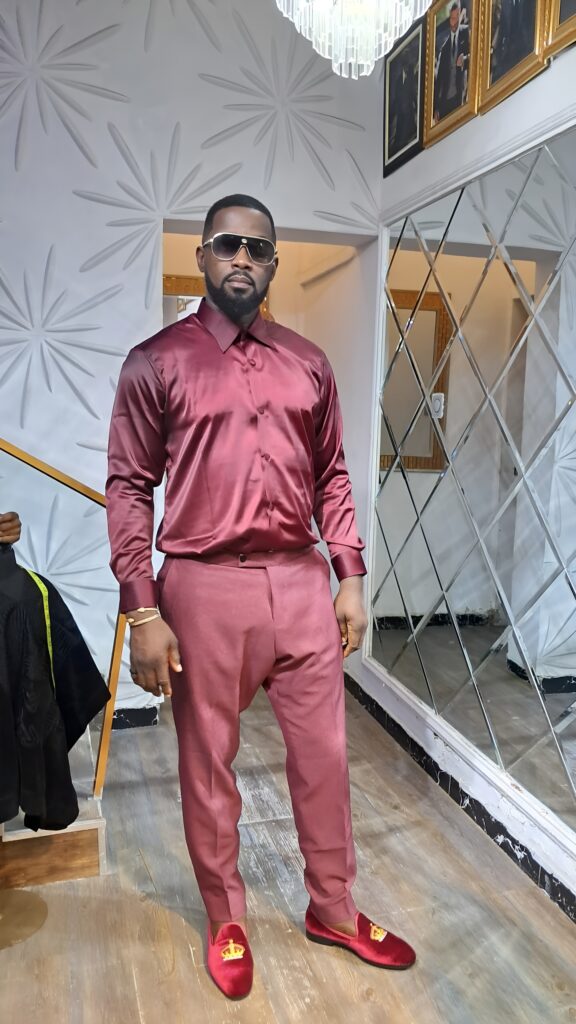
Looking back, is there anything you would have done differently in your portrayal of Efe?
Whenever I do something beautiful, no matter what, no work of art is complete. I press forward, forgetting what is behind, because what is done is done, and I have no regrets.
The film touches on cybercrime in a very grounded way—did it change your perspective on Nigeria’s digital space?
It only opened me up to the Nigerian digital space and what’s available in regards to AI today, and what it can be used for. There are people who use it for crime, and those who use it for good, so it depends on whose hands it is in. Like a knife, if a killer picks it up, it is dangerous, but if a woman who peels oranges picks it up, then it is just for peeling oranges. The AI system is there to better yourself as a person and help your country in general, but if you turn it around and use it for different vices, then it becomes useless to everybody. So it showcases what we have in the system, giving where we are coming from to where we are at, from the analogue age to the digital age, to the supercomputer age, to the super technology age, and now AI, where AI can even make a movie within minutes.
What’s one hobby or interest people would be surprised to learn you have?
I love cooking, I love swimming, I love reading, and I love playing table tennis; it’s my favourite sport.
How does your family or upbringing influence the kind of roles you choose today?
The roles I play aren’t influenced by anyone, I just don’t want to be type-cast, I don’t like stereotypical roles. I like directors pushing me beyond my boundaries, any role is possible. I won’t rule out a new role, if the makeup artist can make me look like a 25-year-old, I would bring the energy of a 25-year-old to the role. I am playful, I am very jovial, just not the kind that people will say is too serious. I play with every strata or humans, it doesn’t matter the age. Age is a number; we grow younger in our personality, just have respect and know where to draw the line. I just don’t want to be seen in just one role alone.
If you weren’t acting, what do you think you’d be doing instead?
Aside from acting, there’s no area in art that I don’t delve into. I write plays, I direct stage plays, I create music, I love cooking as well, and I cook for business. I make perfumes; my perfumes are quite pricy, effective, and long-lasting. When I am not doing any of that, I am on my laptop reading or writing.




